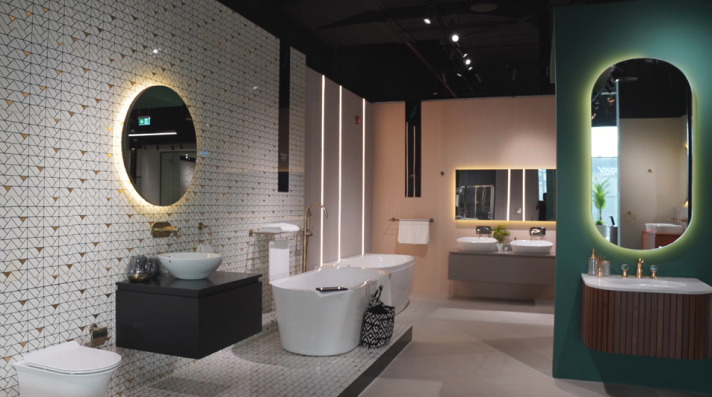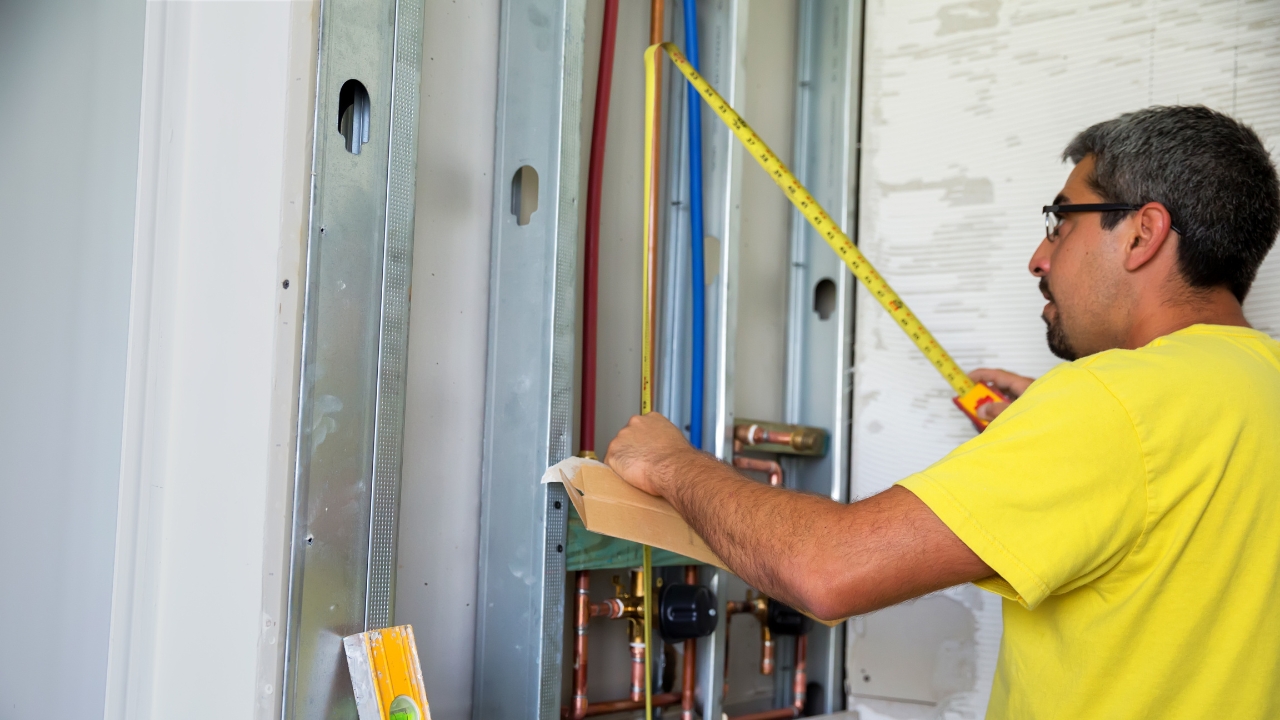Your bathroom’s shower is a major home improvement project that, when done poorly during an installation or replacement process, can be disastrous. Installing the shower with or without professional assistance is still debatable by many homeowners. Nevertheless, both DIY and employing professionals have pros and cons to consider. Costs of building codes, skill levels, quality standards and compliance with it are some of the key factors to look at so as to determine which route best suits you.
This guide describes the main factors that must be taken into account when making a choice between DIY and professional installation of showers. Understanding the differences between the two methods will help you make an informed decision about what to do next. The decision depends on your individual project, budgetary allocations, time period required for completion and your degree of ease in handling plumbing plus other construction tasks. It should be noted that both choices are valid; this essay seeks only to outline the major trade-offs you might face when deciding on the most suitable way forward for your home remodeling needs.
Key Factors to Consider When Choosing Between DIY and Professional Installation

Credits: Canva
Skill Level and Experience
Installing a shower involves a variety of specialized skills like framing, plumbing, tiling, waterproofing, trim work, and more. Hiring a professional shower installer ensures your project will be handled by someone with expertise in all required trades. Many have years or even decades of experience successfully completing bathroom remodels and shower installations.
In contrast, as a DIYer your existing skillset may not cover every aspect of the installation process. While online tutorials can teach you fundamental techniques, some parts of the project have a steep learning curve. For example, adjusting plumbing and working with shower valves and mixing hardware can be quite complex if you have limited previous experience.
Evaluate your current DIY skills and knowledge honestly. Shower plumbing, waterproofing, tile setting, and other key steps directly impact the safety and functionality of the shower. Botched installations often lead to leaks, mold, and repairs down the road. Be realistic about which parts you can handle successfully on your own before opting for a full DIY approach.
Cost Considerations

Credits: Canva
One of the main appeals of DIY shower installation for many homeowners is the prospect of significant cost savings compared to hiring a professional. You avoid paying labor costs by doing the work yourself.
However, once you factor in the price of specialty tools and equipment needed, plus any mistakes and re-dos along the way, the cost advantage of DIY is not always so clear cut. Professionals have the right tools on hand already and can complete the job efficiently in one shot.
With a professional, you also gain the peace of mind that comes with warranties on the shower unit, workmanship, and even waterproofing. DIY jobs typically won't come with any type of warranty or guarantee. Weigh the value of professional expertise and warranties against the higher upfront price tag.
Time Investment
A DIY shower installation requires a substantial time commitment. As an inexperienced homeowner, each step from framing to tile-setting will likely take you much longer compared to a professional. Plan on the project consuming full weekends and evenings over a period of several weeks, if not months.
In contrast, a professional shower installer can complete the entire job in as little as a few days. This faster timeline is especially advantageous if the new shower is needed urgently to replace an existing broken or leaking unit. Professionals' efficiency can help minimize bathroom downtime.
Consider any opportunity costs related to the prolonged timeline of DIY. Will not having your main bathroom fully functional for weeks or months be problematic? Do you have time for a drawn-out project considering your work schedule and other responsibilities? These are key questions when weighing DIY against hiring help.
Quality and Warranty

Credits: Jaquar
One concern with DIY shower installation is often achieving the same level of fit, finish, and function compared to hiring a professional. Contractors have access to commercial grade materials, specialised tools, and refined skills from years of experience. This typically adds up to higher quality results.
With DIY, perfection is harder to achieve. Your tiling lines or niche shelving may end up uneven. Leaks can develop over time. Aesthetic elements like trim details may look sloppy. Many novice installers end up with less than ideal outcomes, necessitating repairs or re-dos.
Professionals also often provide warranties covering installation workmanship, waterproofing, shower unit materials, and more. DIY jobs won't come with any warranty protection. Carefully assess whether your DIY skills can realistically produce professional-grade results.
Safety and Compliance

Credits: Canva
Shower installation involves dealing with electricity, water supply lines, drainage, heavy materials, and more. Safety is paramount when taking on these types of home improvement projects. Mistakes made by inexperienced DIYers can potentially lead to injuries or serious issues like mold growth or property damage if leaks develop.
Hiring a licensed professional ensures your project will adhere to all codes and regulations too. DIY showers may violate requirements related to plumbing, electrical, ventilation, or accessibility rules in your area. This can nullify homeowners insurance policies or create problems when trying to sell the home later.
Don't underestimate the value of a professional's expertise when it comes to safely executing the technical aspects of shower installation and complying with applicable building codes.
Conclusion
As you can see, there are compelling reasons to go either the DIY route or to hire a professional when installing a new shower. The right choice comes down to honestly evaluating your skills, budget, time constraints, quality standards, and safety concerns for the project. Both options are viable with advantages and disadvantages.
Many homeowners opt for a hybrid approach handling straightforward tasks like demolition and preparing the shower base themselves, while outsourcing tricky parts like plumbing and waterproofing to contractors. This balances cost savings with quality craftsmanship.
The most important thing is carefully weighing the key factors outlined above as they relate to your specific bathroom and preferences. This will guide your decision between tackling all or part of the shower installation solo versus utilizing the expertise of a qualified professional.
With proper planning upfront and care taken during the process, you can achieve the high-quality shower of your dreams whether that means rolling up your sleeves for a DIY project or leaving it in capable hands. Focus on setting realistic expectations in terms of skills, costs, time, and results when deciding between DIY and pro installation.
FAQs
- What type of shower unit is easiest for DIY installation?
Fiberglass shower stalls or acrylic/plastic surrounds are the most DIY-friendly options. Tile showers require advanced tiling, waterproofing, and plumbing skills.
- What are signs I may need to hire a professional instead of DIY?
If the existing plumbing or electrical systems need major adjustments, if structural framing changes are required, or if you lack tiling experience, consider hiring a pro.
- Can I do part of the shower installation myself and leave the trickier parts to a contractor?
Absolutely. Many homeowners demo the old shower, do surface prep work, then get help with plumbing, waterproofing, and niche tile work.
- How much time does a DIY shower installation typically take?
Pros can usually complete the job in a few days depending on the project scope.
- What kind of warranty do professional installers provide?
Many offer 1-5 year warranties covering workmanship, shower unit materials, plumbing parts, and waterproofing. DIY jobs won't have warranties.
- Does DIY shower installation require permits?
Yes, permits are typically required for plumbing, electrical, and structural work involved. Permits ensure compliance with local building codes.
Concluding Thoughts
It’s your decision on the right method of shower installation between DIY and professional, but this choice requires you to take into account such key elements as your individual skills, expenses, time consuming, quality requirements and safety measures. Think about it before you turn a blind to full DIY. There are different experts who are employed by local contractors working in close association with them for many years hence bringing a combination effect. Alternatively, one can make a bathroom just out of doing some simple tasks then call the pros when necessary.


